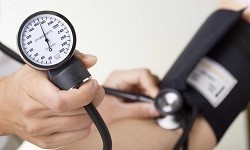You can get a concussion during sports, during a fight, falling from a height, due to an accident on the road or at work. In this case, the bones of the skull remain intact. There is no visible damage to the head, but inside it can form a hematoma that compresses the brain tissue. The person feels at first quite healthy, and the deterioration of the condition comes after a few days. It is necessary to know what to do with a concussion to prevent undesirable consequences.
- Degrees of severity and symptoms
- First aid at home
- How is concussion treatment performed?
- Consequences and Forecast
- How to protect yourself from concussion
We treat concussion effectively at home The main symptoms and signs of a slight concussion of the brain What are the symptoms of concussion in adults Concussion in children - signs and treatment Possible consequences after concussion of the brain
Degrees of severity and symptoms
Earlier, the diagnosis of CMH was made only in the event that the victim lost consciousness. Now it is common to distinguish between several degrees of severity of concussion.
Degrees of severity:
- 1 degree (light) - poor state of health, confusion, the symptomatology persists for about 30-60 minutes, and then completely disappears;
- 2 degree (medium severity) - confusion and confusion of consciousness persist for more than 60 minutes;
- 3 degree (severe) - a syncope, pupils do not react to light, short-term memory loss.
Concussion is characterized by certain symptoms, which can persist for several days, and can pass without a trace after a couple of minutes. The severity of the pathology depends on the type of injury, the acting force, the point of application. With a slight concussion, the patient has only a few symptoms.
Symptoms:
- dizziness, headache;
- nausea, vomiting;
- increased sweating;
- noise in the ears, weakness;
- disorientation in space;
- fainting, short-term amnesia;
- incoherent speech, convulsions;
- asymmetric pupil dimensions (a sign of hemorrhage);
- photophobia, insomnia;
- flushes of blood to the face;
- pain during movement of eyeballs;
- problems with concentration of attention;
- drowsiness or agitation.
If a person has lost consciousness or does not remember the circumstances of the trauma, previous events, concussion is very likely. The appearance of pain when turning the head indicates a concomitant damage to the cervical spine, muscles.
The pain has a pressing character, it happens during movement and at rest, it can disappear on its own. Sometimes coordination is disrupted. The victim may not understand where he is, how to get home, does not perceive the information. The surrounding objects appear blurred, and the bright light causes severe discomfort.
Important! Both a light and a heavy degree of SGM requires compulsory examination from a traumatologist, a neurosurgeon or a neurologist.
Concussion can pass a couple of minutes without a trace, and can cause complications. The consequences sometimes appear even after several years in the form of loss of memory, a decrease in the level of intellectual abilities, frequent headaches.
First aid at home
Independently at home, you can not treat a concussion. If a person is injured head, you need to call an ambulance. A competent first aid will improve the patient's well-being and eliminate possible complications.
The victim first of all needs to ensure peace. To do this, it is laid on a flat surface. You can put a roller under the neck. If the patient is unconscious, he is turned over to his right side.
It is necessary to constantly monitor the breathing of the victim. If it is difficult for him to breathe, it is necessary to unbutton the buttons, remove the scarf, kerchief, belt. To the impact site, ice or a cold compress must be applied. Wipe the wound on the head with an antiseptic.
If a person is conscious and has a headache, he can be given pain medication. To feed the victim it is impossible. If you do not feel sick, you can give him a warm tea, but remember that this can provoke vomiting. You can not give a person to sleep, you have to constantly talk with him. Any vehicle of the victim is taken to the hospital. In fainting, an ambulance is urgently called for.
Important! Do not self-medicate. At home, only first aid is provided. Drugs are prescribed by the doctor after a thorough examination of the patient.
How is concussion treatment performed?
Before starting to treat concussions of any severity, doctors conduct a brain examination. First, the patient is assigned a radiography of the bones of the skull, make a corresponding snapshot. Using this method, you can identify cracks and fractures. You can see damage to the brain tissue and bruises due to CT and MRI. Dopplerography is used to visualize the vessels.
However, in the diagnosis should take into account the complaints of the victim. This type of injury usually does not have any special signs. In the first minutes you can only notice a loss of consciousness, double vision, disruption of the coordination of movement. With a concussion of the brain, there is no fracture of the bones of the skull, the pressure is normal, the composition of the cerebrospinal fluid without any deviations.
Instrumental examination does not reveal a violation of the structure of the brain. To confirm the diagnosis, the doctor in detail interviews the victim about his health and the circumstances of the injury. Concussion is a clinical diagnosis, it is established on the basis of complaints and examination data.
After examination, the doctor appoints a patient a course of therapy. At an easy or light; mild form it is possible to be treated at home. The patient is recommended to comply with bed rest for 1-3 weeks. At the same time, you can not watch TV, read books, work at a computer, do exercises and exercise.
At home, you need to follow a diet - there are foods rich in vitamin B (liver, asparagus, fish, beans), as well as poultry, nuts, honey, dairy products, vegetables and fruits. From insomnia drink tincture of mint and cinnamon, and to improve the condition you can drink herbal teas from melissa, St. John's wort, dog rose, nettle.
Drugs for the treatment of concussion:
- anesthetics - Dexalgin, Sedalgin;
- from dizziness - Cinnarizine;
- to improve the blood circulation of the brain - Fezam;
- soothing - Corvalol, Valerian, Motherwort;
- sleeping pills - Donormil;
- tranquilizers - Gidazepam, Afobazol;
- carrying out vascular and metabolic therapy - Cavinton, Nootropilum, Sermion, Pantogam;
- medicines with magnesium - Magne B6, Panangin;
- antioxidants - Cytoflavin, Mildronate;
- stimulators of CNS receptors - Vasobrail;
- vitamins and microelements;
- decongestants - Diakarb;
- tonic drugs - Ginseng extract, Saparal.
In severe form, the victim needs to remain in the hospital for the first few days and take medicine. During this period, he needs medical supervision. To exclude intracranial hematomas, CT or MRI of the brain is prescribed.
What medications are prescribed for severe concussion? In this case, the patient is given a pill, as with a moderate shock, intramuscular and intravenous injections of nootropic and vasotropic drugs, drop solutions of electrolytes to restore the acid-base balance. Patients are in hospital, treatment is carried out for two weeks.
Important! Due to the hematoma obtained, after a few days, the compression of the brain tissue and edema may occur. This complication requires a surgical operation. With timely diagnosis and treatment in the hospital, complications can be avoided.
Consequences and Forecast
To avoid negative consequences, it is necessary to conduct a survey as soon as possible and begin treatment. If it is irresponsible to strike, then a person even with a slight concussion can experience such complications: migraines, frequent headaches, short-term or long-term memory loss, post-traumatic epilepsy, mental decline, hypertension, nervous disorders.
If you contact the hospital in time and follow the doctor's recommendations, complications can be prevented. Full rehabilitation is possible after correct and timely treatment.
After the transferred SGM the patient should take medications to restore the functions of the brain. Duration of treatment can be about six months with severe trauma. In this period, headaches, insomnia, fear of light, depression, a problem with concentration of attention are possible. After a while all these problems completely disappear, there is a complete restoration of the brain.
Important! If you do not heal the concussion that a person received with a strong impact, then complications may develop. Good state of health does not give a complete idea of the problems inside the brain, a computer examination is necessary. Otherwise, you can even die a few days after the impact.
How to protect yourself from concussion
To avoid concussion in the child, it is necessary to constantly watch his games on the playground. Children must learn to fall. protecting the head, and jump right from a low height. If a child has a bicycle, scooter, skate, you need to buy a helmet for him, he helps reduce the severity of the blow. In the sports section, the coach must monitor the safety of training.
In children up to a year, a tremor occurs because of an oversight of the parents. Babies can fall out of the crib, stroller, hand or changing table. You must always be near the child and do not leave him alone in a dangerous place.
Adults need to follow the rules of the road and industrial safety. Ride a bicycle, skiing, skating, riding on horseback is possible only in a protective helmet. You can not go in for sports in a state of intoxication. It is necessary to assess your strength, mastering unfamiliar types of extreme sports.
A blow on the head or a fall is an occasion to consult a doctor. When getting a concussion, you need to give up for a while from hard physical labor. It is important to conduct computer diagnostics in the hospital and undergo, if necessary, a course of therapy.



